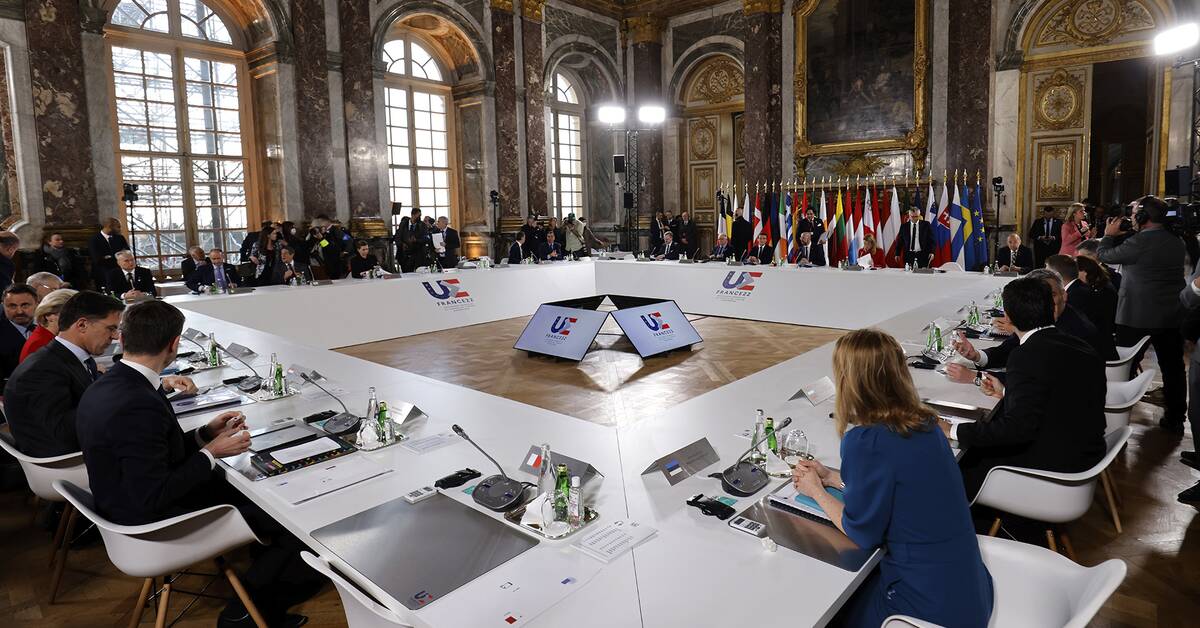Thursday night's EU summit slipped into a usual nightmare for Prime Minister Magdalena Andersson (S) and her colleagues.
Only at 2.30 last night was it signaled that the meeting was ready.
- We have had a pretty long and pleasant evening together.
It was a good discussion and it is a very, very united EU that clearly stands up for Ukraine, says Prime Minister Magdalena Andersson at a Swedish press conference in the middle of the night.
Among other things, they talked about how EU countries can increase their defense spending and cooperate more on the defense side.
Solidarity clause
Andersson and Finnish Prime Minister Sanna Marin had sent letters to colleagues ahead of the meeting, emphasizing the importance of the EU's own solidarity clause - enshrined in Article 42 (7) of the EU Treaty.
The clause stipulates that EU countries must help each other in the event of an attack and has sometimes been described as an EU equivalent of NATO Article 5, which states outright that an attack on a NATO country is an attack on everyone.
Although it is still unclear how strong Article 42 really is, Andersson is satisfied with the response from colleagues at the meeting.
- Those who raised it emphasized the fact that this section exists and that it means something.
This is a clear indication that one will not remain passive if a European country is attacked.
In fact, there were also some who compared with (NATO) Article 5, says the Prime Minister.
EU membership?
There is widespread agreement among leaders on support for Ukraine and condemnation of Russian action.
- What Russia is doing is not just an attack on Ukraine.
It is an attack on the European security order and the democratic countries' opportunity and right to choose their own way forward, Andersson says.
However, when it comes to Ukraine's desire to gain EU candidate status, opinions differ.
Of course, almost all EU countries from Eastern Europe think so.
- It is not only in our interest to give Ukraine a membership perspective, but it is also our moral duty to do so.
Ukraine is fighting not only for Ukraine, but for Europe.
If not now, when then ?, Estonian Prime Minister Kaja Kallas spoke in the European Parliament on Wednesday.
Skepticism in the West
Several countries in Western Europe are more skeptical and want to accelerate slowly, both for Ukraine and neighboring Georgia and Moldova, which have also applied for membership.
- We see that Ukraine is part of the European family and we want to support Ukraine on the way forward, but on the other hand - and it is no surprise - Ukraine will not be a candidate country here and now, Andersson says.
- The EU is based on treaties and laws and rules and even if the situation is terrible in Ukraine, we can not round those laws and rules.
However, we can do more to support Ukraine in this situation, but also in the future to support them on the road to EU membership, says the Prime Minister.
In their joint statement from the meeting, EU leaders are content to write that they "recognize Ukraine's European aspirations and elections" and that they are now awaiting the European Commission's opinion on the application that Ukraine has submitted.
Away with Russian energy
A large part of the summit was also devoted to the consequences of the war in Ukraine for energy, both in terms of rising prices and the EU's dependence on Russia as a supplier.
- It was exciting to hear the great commitment to phase out Russian oil and gas, where there is really a broad consensus on the importance of doing it as quickly as possible, Andersson says.
She likes the European Commission's promises to speed up permits for the development of more renewable energy.
- If we are to get away from the Russian gas, we will quickly need to expand offshore wind power.
This is where the great potential lies and those permit processes take far too long, says the Prime Minister of Versailles.
On Friday, the EU summit will end with economic discussions on growth and investment.
A closing press conference is scheduled for 2.30 pm.

